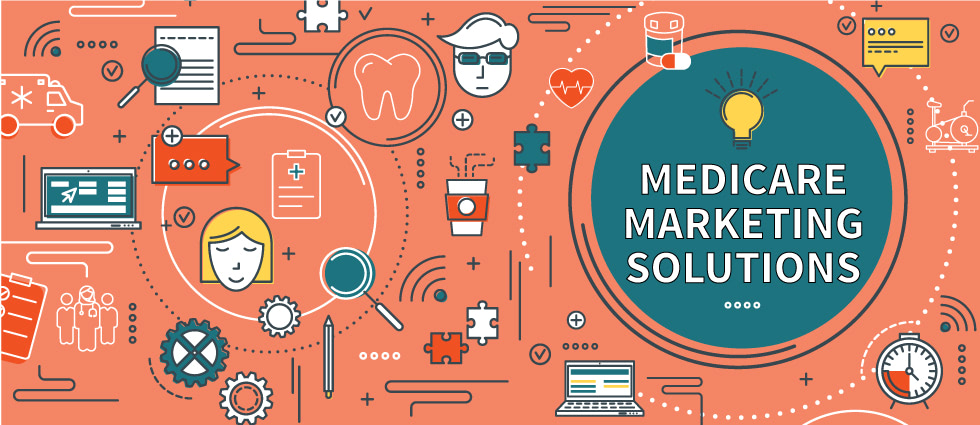
As the digital landscape evolves, one of the most impactful tools in improving Medicare marketing engagement is the use of chatbots. Chatbots, powered by artificial intelligence (AI), are transforming how Medicare agents and marketers interact medicare marketing 2025 with potential beneficiaries. These AI-driven tools provide instant, efficient, and personalized communication, allowing for 24/7 engagement and improved lead nurturing. Chatbots are particularly valuable in the Medicare space, where beneficiaries often have many questions about eligibility, plan options, and enrollment processes. By incorporating chatbots into their marketing strategies, Medicare professionals can enhance user experience, streamline communication, and drive better engagement with prospective clients.
1. Instant and Personalized Support
Medicare beneficiaries frequently encounter complex questions about their plans, coverage, and eligibility. Chatbots provide a solution by offering immediate, personalized responses to common inquiries. By gathering information from users, chatbots can tailor their responses based on the individual’s specific situation, such as whether they are new to Medicare, looking to switch plans, or interested in specific benefits like prescription drug coverage. This personalization ensures that beneficiaries receive the most relevant information, improving their experience and engagement. Instead of waiting for hours or days for a response, users can receive answers instantly, which keeps them engaged and motivated to explore more options.
2. Lead Generation and Qualification
Chatbots are excellent tools for generating and qualifying leads. Medicare marketing often involves reaching out to a wide audience, but not all leads are equally valuable. AI-powered chatbots can help filter and prioritize leads by asking qualifying questions, such as whether the user is eligible for Medicare or if they are looking for specific plan types. By collecting information like age, location, and healthcare needs, chatbots can automatically segment leads into categories, allowing agents to focus on high-quality prospects. This automation helps streamline the lead generation process, ensuring that Medicare agents and marketers can concentrate on engaging with the most promising leads while saving time on less relevant contacts.
3. Increased Engagement Through Continuous Availability
Medicare beneficiaries are often busy and may need help at unconventional hours. Whether it’s after business hours or on weekends, chatbots provide 24/7 availability, ensuring that users can engage with your marketing content and receive assistance whenever they need it. This level of constant availability helps build trust with potential clients, as they know they can reach out at any time without feeling rushed. Chatbots can answer frequently asked questions, provide initial consultations, and direct users to additional resources, creating a seamless experience that keeps prospects engaged even when agents aren’t available. This always-on approach is crucial for maintaining momentum throughout the customer journey.
4. Streamlined Enrollment and Plan Comparison
The enrollment process for Medicare can be confusing, and potential beneficiaries often need assistance understanding which plans best suit their needs. Chatbots simplify this process by guiding users through the various plan options, helping them compare Medicare Advantage, Medicare Supplement, and Part D plans based on their specific preferences and medical needs. For example, a chatbot can ask questions about a user’s preferred doctors, prescription drugs, or coverage preferences, and then suggest plans that align with their requirements. This direct engagement not only helps users make informed decisions but also reduces friction in the decision-making process, increasing the likelihood of conversion.
5. Data Collection and Analytics for Campaign Optimization
One of the most significant advantages of using chatbots in Medicare marketing is the ability to gather data on user interactions. Chatbots can track engagement metrics, such as common questions, user behavior, and responses to different marketing messages. This data provides valuable insights into what potential beneficiaries are most interested in and where they may be experiencing confusion. For example, if many users ask about prescription drug coverage, this could indicate that more content should be created around this topic. Additionally, chatbot interactions can highlight pain points in the customer journey, helping marketers adjust their strategies to improve overall engagement and conversion rates. By continually analyzing chatbot data, Medicare professionals can optimize their campaigns for better results.
Conclusion
Incorporating chatbots into Medicare marketing strategies is a powerful way to boost engagement, improve user experience, and streamline the marketing process. These AI-driven tools provide instant, personalized responses to common questions, qualify leads, and offer continuous availability, ensuring that beneficiaries feel supported throughout their journey. Moreover, chatbots assist with plan comparison and enrollment, simplifying the often-complex Medicare process for users. By collecting data from chatbot interactions, marketers can gain valuable insights that help refine their campaigns and improve overall performance. As the demand for efficient, responsive healthcare marketing continues to grow, chatbots are proving to be an indispensable tool for enhancing Medicare marketing efforts and driving successful outcomes.